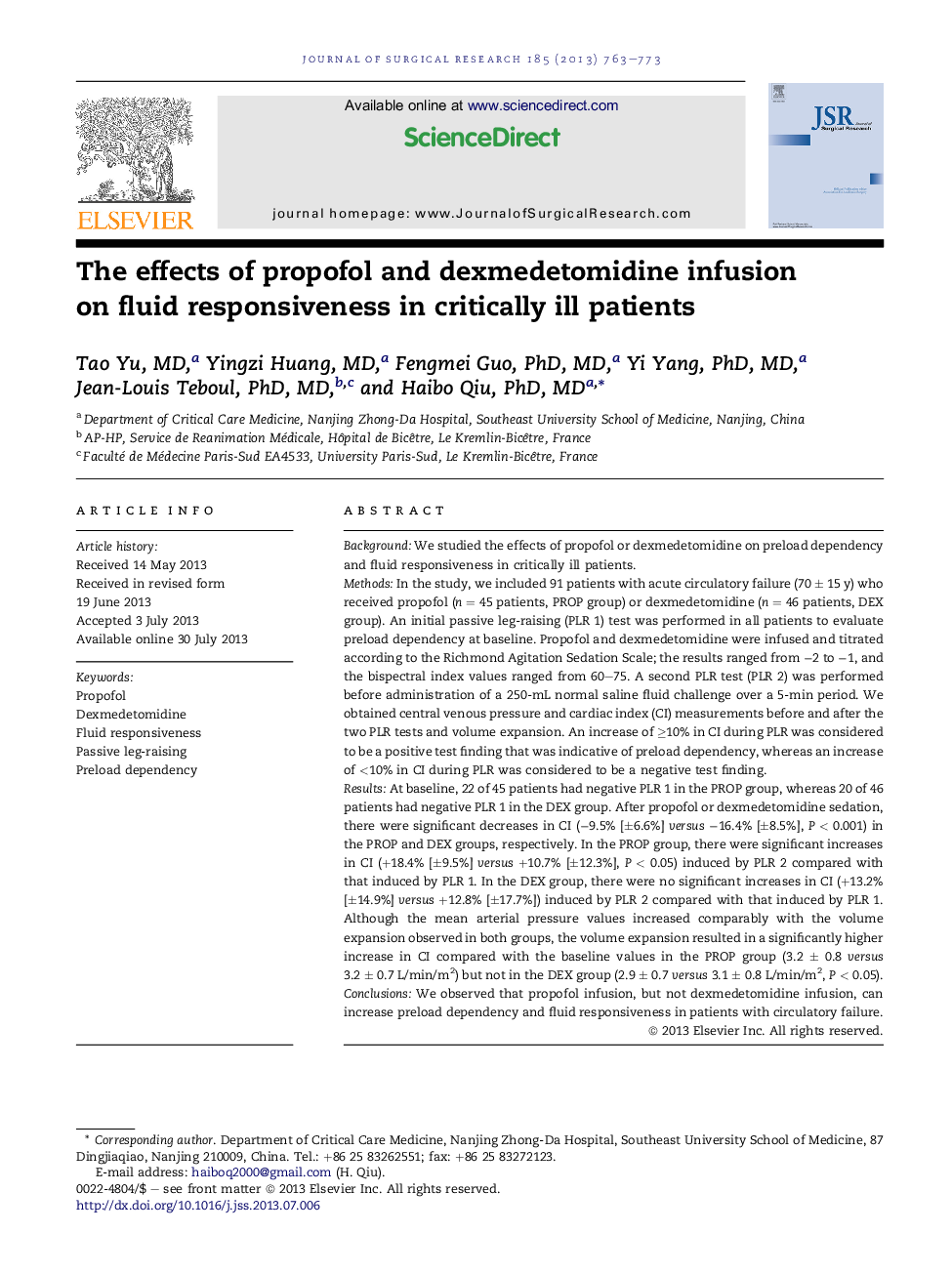| Article ID | Journal | Published Year | Pages | File Type |
|---|---|---|---|---|
| 4300816 | Journal of Surgical Research | 2013 | 11 Pages |
BackgroundWe studied the effects of propofol or dexmedetomidine on preload dependency and fluid responsiveness in critically ill patients.MethodsIn the study, we included 91 patients with acute circulatory failure (70 ± 15 y) who received propofol (n = 45 patients, PROP group) or dexmedetomidine (n = 46 patients, DEX group). An initial passive leg-raising (PLR 1) test was performed in all patients to evaluate preload dependency at baseline. Propofol and dexmedetomidine were infused and titrated according to the Richmond Agitation Sedation Scale; the results ranged from −2 to −1, and the bispectral index values ranged from 60–75. A second PLR test (PLR 2) was performed before administration of a 250-mL normal saline fluid challenge over a 5-min period. We obtained central venous pressure and cardiac index (CI) measurements before and after the two PLR tests and volume expansion. An increase of ≥10% in CI during PLR was considered to be a positive test finding that was indicative of preload dependency, whereas an increase of <10% in CI during PLR was considered to be a negative test finding.ResultsAt baseline, 22 of 45 patients had negative PLR 1 in the PROP group, whereas 20 of 46 patients had negative PLR 1 in the DEX group. After propofol or dexmedetomidine sedation, there were significant decreases in CI (−9.5% [±6.6%] versus −16.4% [±8.5%], P < 0.001) in the PROP and DEX groups, respectively. In the PROP group, there were significant increases in CI (+18.4% [±9.5%] versus +10.7% [±12.3%], P < 0.05) induced by PLR 2 compared with that induced by PLR 1. In the DEX group, there were no significant increases in CI (+13.2% [±14.9%] versus +12.8% [±17.7%]) induced by PLR 2 compared with that induced by PLR 1. Although the mean arterial pressure values increased comparably with the volume expansion observed in both groups, the volume expansion resulted in a significantly higher increase in CI compared with the baseline values in the PROP group (3.2 ± 0.8 versus 3.2 ± 0.7 L/min/m2) but not in the DEX group (2.9 ± 0.7 versus 3.1 ± 0.8 L/min/m2, P < 0.05).ConclusionsWe observed that propofol infusion, but not dexmedetomidine infusion, can increase preload dependency and fluid responsiveness in patients with circulatory failure.
